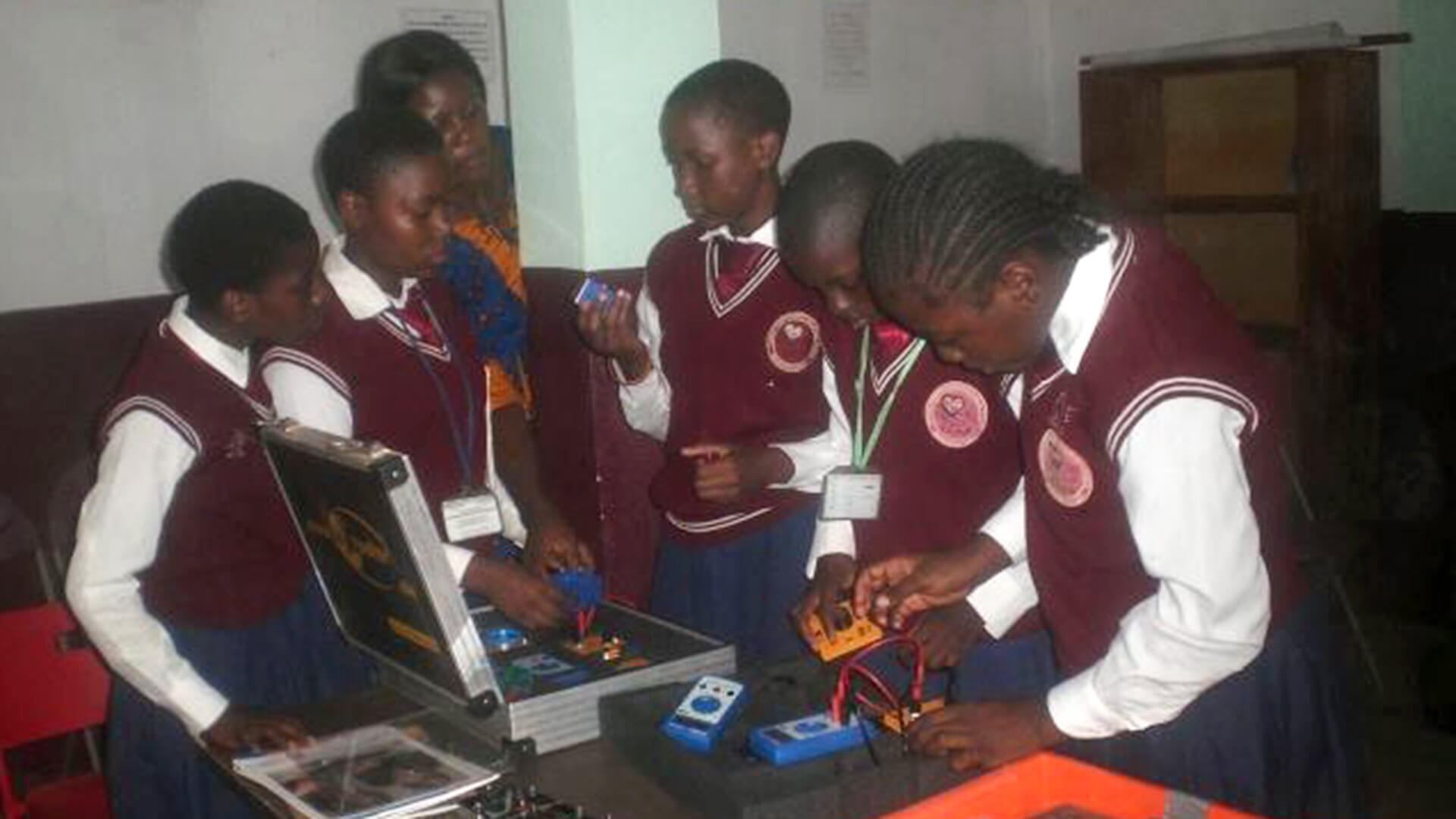- September 16, 2019
- By Audrey Hill
For centuries, the farmlands of Cameroon have been fertile ground for peanuts, cacao beans and bananas. They aren’t so well-known for growing engineers.
But that’s where engineering educator Janet Fofang got her start. In a country where one of four girls can’t read and science, technology, engineering and math (STEM) education is in its infancy, Fofang—now a doctoral student at UMD’s College of Education—is working to change that, founding a school and creating after-school programs back home to give students there the tools to compete in an increasingly high-tech world.
“If we’re not promoting STEM education in Cameroon, we can’t develop in industry, and we’ll not embrace digital globalization like other places in the world,” Fofang said. “We would buy phones from China and software from the U.S., and we would keep spending but not contributing to the digital economy.”
Fofang was 10 when her father, a police officer, moved the family to the countryside. Most people she met there had little formal education, but they didn’t lack for innovative ways to get things done—usually crafted with their own hands—and she and her six brothers began to emulate them.
“People in the village were into farming and tinkering, and we started mingling with kids that are from families where you make things,” Fofang said.
She had to hide her growing sense of DIY curiosity in religious boarding school—"Tinkering had to be kept quiet when I was in the nunnery,” she says—but it flowered when she went on to university, and she later became one of only a tiny handful of female engineering instructors in Cameroon.
Beyond advancing her nation’s standing, Fofang wants each student to develop their own scientific potential, a major motivation for starting Tassah Academy, a K-12 technological school in the capital city of Yaounde, in 2009. The institution started with only three classrooms, but now serves more than 900 students, most of whom are girls.
While the teaching field in Cameroon is mixed between men and women, women mostly teach in elementary school, and become ever rarer as grade levels rise. The majority of STEM classes, Fofang said, are taught by men.
“It’s a patriarchal society. Gender roles are quite firm,” she said. “I start with myself when I design a course. I think about what I would like to know. I happen to be a woman so I see from that lens.”
Along with Tassah Academy, Fofang also created a makerspace, the NextGen Center, which allows a broader pool of youth to learn about robotics, coding and other STEM skills through afterschool programs.
“Math is taught theoretically, but with a robot, kids can understand movement, time and speed and reframe in his or her own understanding,” Fofang said
Fofang won several awards for her advancement of STEM education in Cameroon, including the 2016 A. Richard Newton Educator ABIE Award, recognizing those “who develop innovative teaching practices and approaches that attract girls and women to computing, engineering and math.”
When she came to the U.S. to receive the ABIE award, she learned about UMD’s doctorate program in the Department of Teaching and Learning, Policy and Leadership at a conference in Houston. It aligned with her desire to understand how to make large-scale changes in education, and she enrolled in Fall 2018.
Last fall, Fofang traveled to Vienna, Austria, to work with a European Union and African Union Commission Digital Economy Task Force to draft digital literacy plans for Africa.
“The thing I find most impressive and inspiring about Janet is her commitment to making change,” said David Weintrop, an assistant professor at COE and her doctoral adviser,. “She has a clear vision for the impact she wants to make in the world and actively thinks about it and works towards it daily.”
Topics
PeopleUnits
College of Education